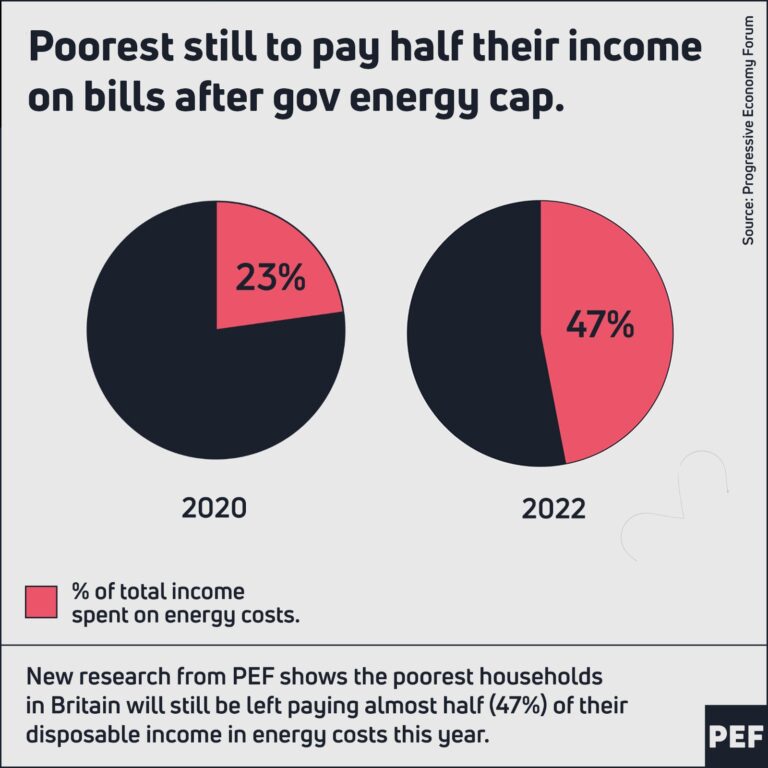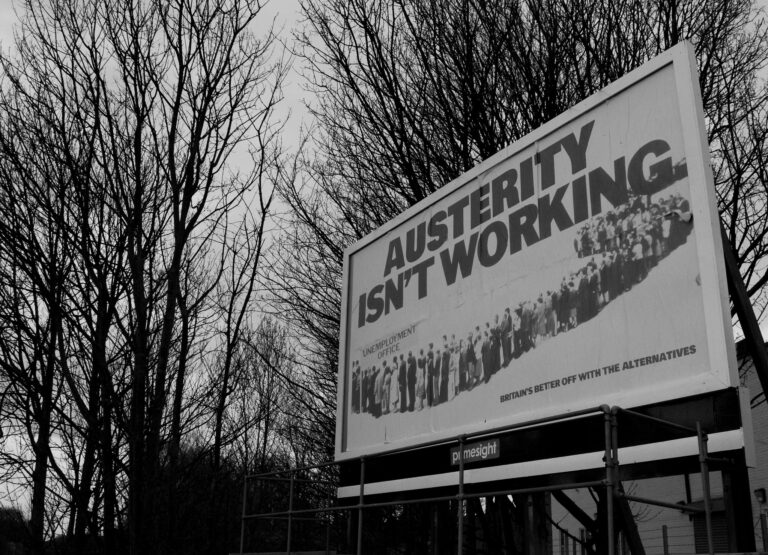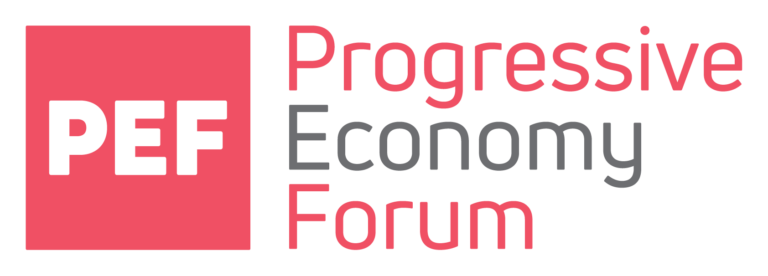A Six Point Plan For The Right (Left) Kind Of Active Government
Ten Years and Counting…
In 2009, we wrote The Spirit Level, based on our work as epidemiologists researching the social determinants of health and wellbeing. We showed, emphatically, that greater equality – a smaller gap between rich and poor – is the fundamental basis of a better society. The more equal of the rich, developed countries have resoundingly better physical and mental health, which is part of the reason why they weathered the storm of Covid-19 better than more unequal countries.
But economic inequality, and its intersection with inequalities related to ethnicity, gender, disability, language, religion and more, is not just a health issue. In The Spirit Level we showed that all the problems that are more common at the bottom of society, that have a social gradient, get worse with greater inequality. And that body of evidence has continued to grow in the years since, based on our own research and the work of many others across the world. In addition to shorter life expectancy, higher death rates and levels of chronic disease, increased obesity, mental illness and poor child wellbeing, more unequal societies suffer from more violence, including homicides, domestic violence, child maltreatment and bullying. Children and young people do less well in school and have lower chances of social mobility and higher rates of dropping out and teenage births. Drug and alcohol abuse, problem gambling, status consumption and consumerism also rise with inequality, while levels of trust and solidarity, and civic and cultural participation decline.
Countries that tend to do well on any one of these measures tend to do well on all of them, and the ones that perform badly do badly on most or all of them. And not only is the impact of inequality wide-ranging, differences between countries are large; and although the poor are worst affected, inequality affects almost everybody.
And that means that the UK is trailing behind the countries to which we usually compare ourselves, on that long list of problems, and that all of us – young or old, male or female, in the North or the South, rich or poor – ALL OF US, are damaged. We are each at higher individual risk, and our whole society is ground down and trapped by inequality: we, and it, fail to thrive.
We’ve used a robust framework analysis to show that this is a causal problem and we’ve done a lot of work to understand the pathways through which inequality does the damage.3 We know that tackling inequality is the central task in responding to the multiple crises we face: the climate crisis, the cost of living crisis, the North-South divide, food insecurity, the gig economy, threats to our democracy. Inequality is at the heart of it all.
The lost decade
When The Spirit Level was published we were at first heartened by the political response to the research. Politicians across the political spectrum seemed to understand the evidence and inequality seemed to take its rightful place on the political agenda.
But what has happened in the UK since then – a decade of austerity, followed by a global pandemic, and now a cost of living crisis, means we’re just as unequal now as we were then. And every crisis that comes along seems to be another engine of increasing inequality.
Who suffered from the Global Financial Crisis? Average real incomes declined, and that was particularly true for the youngest and lowest paid workers. Who were most likely to be exposed to Covid, to be infected, to be really sick, to die? Death rates were twice as high in the most deprived areas of the UK as in the most affluent. And we know who is already suffering most from rising prices, rising interest rates in the cost of living crisis – those on low incomes, on benefits, families with children, especially lone parents and everyone living outside of London and the south east.
And in all three of these crises, it hasn’t simply been a matter of the poor getting poorer. In these big existential crises, the rich have got richer, a lot richer. In the years following the Global Financial Crisis, the world’s richest 1% increased their wealth until they owned more than the bottom half of the world’s entire population. Top investors made billions by buying up shares in failing banks, betting against housing markets that were foreclosing on the mortgages of the poor, basically “buying when there’s blood in the streets” to realize massive gains during recovery. The pay of the FTSE 100 chief executives has sky rocketed, unlike that of their workers. During the pandemic, the rich accumulated wealth, including from government procurement under emergency regulations with lowered scrutiny for corruption. Oil and gas companies have made huge profits since the energy crisis began, and their chief executives continue to be paid millions, some of them many millions.- Huge pay and benefits packages and dividends have enriched the chief executives and shareholders of the UK’s water companies despite their abysmal record on tackling leaks, pollution and investment in new reservoirs.
We need the right (left) kind of active government
The Coalition and Conservative governments have certainly been active since 2010. They have actively failed to tackle inequality; they have acted to benefit the rich and harm the rest of us. Their actions speak much louder than their hollow words on levelling up.
An Active Labour Government could do so much to transform our society from the failing, unproductive, harmful state it is in, to one that promotes and, crucially, achieves the welfare and wellbeing of all its citizens. An active government that puts wellbeing first through tackling inequality would see spin-off benefits and savings across health, education, social care, law enforcement and more.
The courage to change
Labour should take heart from the progressive preferences of British citizens. When polled, the large majority of the public are in favour of progressive policies that are too often dismissed as radical, utopian, or unfeasible by the press or the Westminster bubble.
Close to 80% of the British public believe that the gap between those on high and low incomes is “too large” and this has been a consistent trend (varying between 72-85%) over the four decades that the British Social Attitudes (BSA) survey has been running. In 2018, the BSA concluded that “the public are likely to have more of an appetite for policies aimed at addressing poverty and inequality than they did a decade ago.”
The majority of the British public want water, energy, rail, buses, Royal Mail and the NHS to be run in the public sector, and that includes the majority of Conservatives.
Recent academic research on public opinion research in “red wall” constituencies found consistently high levels of support for Universal Basic Income, even when the policy was presented to voters in terms used by its opponents. There is little evidence that voters with conservative social values – those in left behind communities in Labour’s former heartlands – won’t actually support radical social policy.
The vast majority of the public support action on climate change and they are much more worried about the costs of doing nothing than they are about the cost of tackling the problem.
The triple-win manifesto
So what should the Labour Party do? We are not politicians, or even political scientists or policy experts. But we do know that Labour needs a bold and compelling vision that brings people onside by painting a picture of a society that can respond to the climate emergency while at the same time transforming people’s lives for the better and creating sustainable growth.
What follows is by no means an exhaustive list, but six triple-win active policy options include:
- Joining WEGo, the Wellbeing Economy Governments (currently Canada, Scotland, Iceland, New Zealand, Wales and Finland), a collaboration of national and regional governments promoting sharing of expertise and transferrable policy practices for building wellbeing economies. It is growth in wellbeing that we need, not growth in GDP.
- Committing to actually tackling inequality by taxing wealth, top incomes and financial transactions
- Giving people resilience and stability through a universal basic income and a proper living wage.
- Enacting the Socioeconomic Duty of the 2010 Equality Act
- Promoting fair work and economic democracy within a Green New Deal
- Putting children and young people at the centre of policy: recommit the country to ending child poverty; end selective education and remove charitable status from private schools; properly fund the comprehensive education system; enshrine in law universal free school meals and free holiday meals for families on benefits; and close the digital divide
Labour needs to act fast and boldly, with energising urgency, to make sure that the policies needed to tackle the climate emergency are politically acceptable to the public because they can see that they are part of a transformation to a fairer, better society in which they and their children and grandchildren can flourish.
What inspired progressive political change in the past was a vision of socialism, embodying the belief that a better society is possible for all of us. The loss of that ideal has meant political hope has dwindled for so many. Labour must build a new vision, firmly built on the foundations of an egalitarian and sustainable society.
Kate Pickett is a social epidemiologist, co-author of ‘The Spirit Level’ and ‘The Inner Level’ and co-founder of The Equality Trust.
Richard Wilkinson is Professor Emeritus of Social Epidemiology at the University of Nottingham Medical School, Honorary Professor at University College London and Visiting Professor at the University of York.
This article is published with permission from Labour Tribune MPs. It first appeared in a collection of essays published by Labour Tribune MPs in 2022 entitled “THE CHANGE WE NEED : How a Starmer Government can Transform Britain”
Further Reading
Wilkinson RG, Pickett K. The Spirit Level: Why Equality is Better for Everyone. London: Penguin; 2010.
Pickett KE, Wilkinson RG. Income inequality and health: a causal review. Social Science & Medicine 2015;128:316-26
Wilkinson R, Pickett K. The Inner Level: How more equal societies reduce stress, restore sanity and improve everybody’s wellbeing. London: Allen Lane; 2018.
Greater Manchester Independent Inequalities Commission. The Next Level: Good Lives for All in Greater Manchester, 2020: https://www.greatermanchester-ca.gov.uk/media/4337/gmca_independent-inequalities-commission_v15.pdf
Pickett K, Wilkinson R. Post-pandemic health and wellbeing: putting equality at the heart of recovery. In: Allen P, Konzelmann SJ, Toporowski J. The Return of the State: Restructuring Britain for the Common Good. London: Agenda Publishing, 2021.
Wilkinson R. If it doesn’t work for people, it won’t work for the planet. Club of Rome, 2021: https://www.clubofrome.org/blog-post/wilkinson-inequality-sustainability/
Reed H, Lansley S, Johnson M, Johnson E & Pickett KE. Tackling Poverty: the power of a universal basic income, London: Compass, 2022. Available at: https://www.compassonline.org.uk/publications/tackling-poverty-the-power-of-a-universal-basic-income/
Johnson M, Nettle D, Johnson E, Reed H & Pickett KE. Winning the vote with a universal basic income: Evidence from the ‘red wall’. London, Compass, 2022.
Picture credit: flickr









